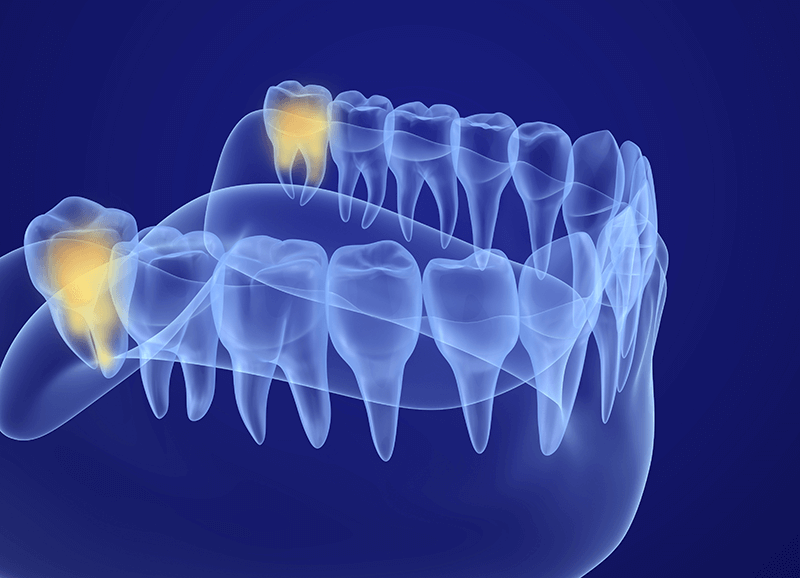
Caring For Your Extraction Site
Aftercare is essential for ensuring you heal quickly and comfortably. Keeping the sites clean will help you avoid infections and other complications. Our office will provide instructions on how to properly clean and protect your mouth after surgery.
A day or two following surgery, patients are likely to be able to resume their normal activities. For a week, you’ll need to take proper care to avoid disrupting your blood clot or sutures. The blood covering your wisdom teeth hole serves as a scab, protecting and healing the wound. If the blood clot is dislodged you’ll have more discomfort and a higher risk of infection. This is what is known as a dry socket and it can happen to one or all of the wounds after wisdom tooth removal.
What to Keep in Mind After Your Surgery
Your dentist will give you instructions on how to best heal after your surgery. Below are a few things to keep in mind:
- Bleeding: Bleeding is normal for the first day after your surgery. Try to avoid excessive spitting so that you don’t dislodge the blood clot from the socket. You will need to replace the gauze over your extraction site as directed by your dentist.
- Pain Management: You may be given over-the-counter pain relievers to manage your pain or prescription pain medication. Prescription pain medication may be helpful if the bone has been removed during the procedure. Holding an ice pack against your jaw can also relieve pain.
- Swelling: Using an ice pack on your cheek will help with swelling and should improve within two to three days. Bruising may occur and may take several more days to heal.
- Rest: For the rest of your day after your surgery, you should plan to rest and take it easy. You can resume normal activities the next day, but for at least a week, it is recommended that you avoid strenuous activity that might result in losing the blood clot from the socket.
- Stitches: You may have stitches that dissolve within a few weeks or no stitches at all. If you have stitches that need to be removed, your dentist will schedule a time for you to get them taken out.
What To Avoid
There are a few things you should avoid eating and doing for the hours following your surgery. For the first 24 hours, you should avoid:
- Alcoholic beverages
- Caffeine
- Carbonated beverages
- Hot beverages
- Hard, chewy, hot or spicy foods
For the first week, you should avoid:
- Drinking through a straw
- Tobacco use
When to Call Your Dentist
If you are experiencing any of the following symptoms, you should contact your dentist right away as it could be a sign of infection, nerve damage or other serious complication:
- Difficulty swallowing or breathing
- Excessive bleeding
- Fever
- Severe pain not relieved by prescribed pain medications
- Swelling that worsens after two or three days
- A bad taste in your mouth not removed with saltwater rinsing
- Pus in or oozing from the socket
- Persistent numbness or loss of feeling around the area
- Blood or pus in nasal discharge


